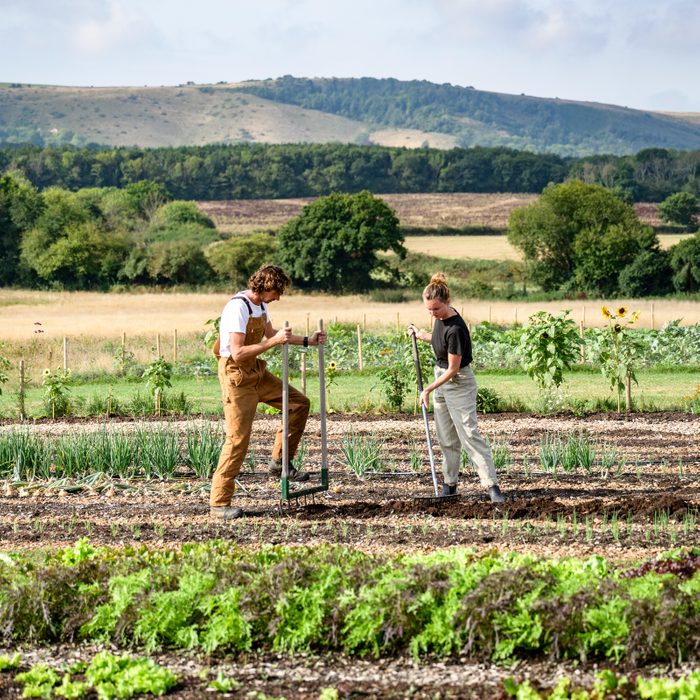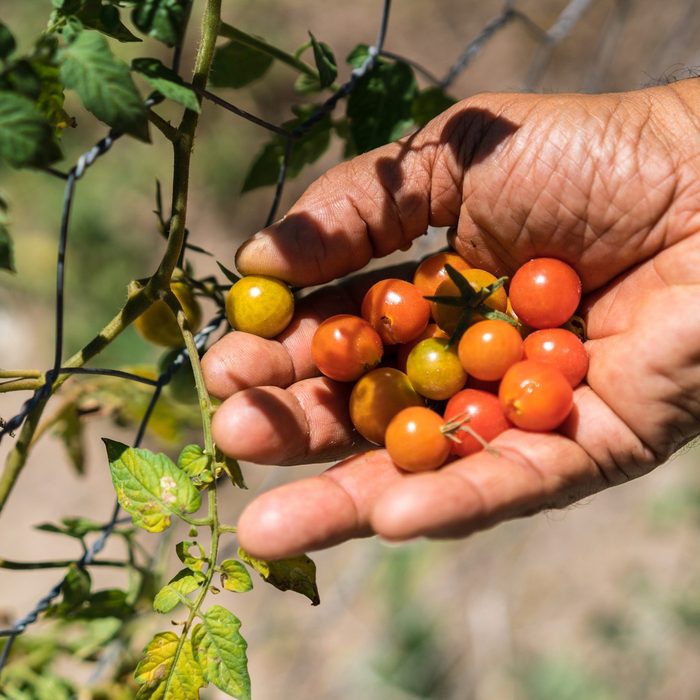
The dual impacts of climate change and increasing demand for organic produce to feed a growing global population has many farmers rethinking best practices for sustainable agriculture. Some have started integrating regenerative agriculture into their farming. So what is regenerative agriculture…and how might evolving farming practices impact your health (and your grocery budget)?
The Noble Research Institute, whose key objective is to address farming challenges by funding agricultural research, defines the goal of regenerative agriculture to “restore degraded soils using practices like adaptive grazing, no-till planting, no or limited use of pesticides and synthetic fertilizer.”
Registered dietitian and spokesperson for the Academy of Nutrition & Dietetics, Jen Bruning, MS, RDN, LD, explains: “Regenerative agriculture is a term used to refer to agricultural practices that improve the health of the planet and leave our land in better shape for future generations,” Bruning says. “Much of these practices center around reducing the carbon footprint of foods being produced.”
Bruning says incorporating regenerative agriculture can also benefit humans’ health: “The benefits of regenerative eating are for the planet: the soil, the air, the animals. Which in turn, can support human health in other ways beyond nutrition,” Bruning says.

Benefits of a regenerative agriculture diet
A 2022 study published in the peer-reviewed journal PeerJ showed the promising benefits of regenerative agriculture and how it can positively impact human health.
The study authors wrote that compared to “conventional farming, regenerative practices … produced crops with higher levels of phytochemicals, vitamins, and minerals.” They added: “Most notably, soil health appears to influence phytochemical levels in crops, indicating that regenerative farming systems can enhance dietary levels of compounds known to reduce risk of various chronic diseases.” Phytochemicals are often used synonymously with “antioxidants.” Based on this study, it seems there’s a strong possibility that regeneratively sourced foods may possess more disease-fighting power that traditionally farmed foods.
Bruning highlights a difference between sustainable agriculture and regenerative agriculture. “Regenerative means actively working to improve the land, the lives of the animals, and protecting the natural environment that the farm works within where sustainable agriculture has a legal definition,” she explains, while the USDA states sustainable agriculture is farming in such a way to protect the environment, aid and expand natural resources and to make the best use of nonrenewable resources.

How to eat more sustainable foods
In an effort to eat more sustainable foods, Bruning shares some advice with us. She recommends that to truly eat in a way that supports regenerative agriculture, you need to know more about the specific foods you eat. “Farmers markets will be picking up across the country as spring gets into full swing. Talk to farmers at the market and learn more about how their farms practice regenerative agriculture.”
If you can’t make it to your local farmers market, Bruning says you can still make sustainable choices at the grocery store. “For those foods you buy at the store, start reading packaging, look up the product website, and if you don’t see the information you need to make a planet-friendly decision, try writing to the company to ask for more information.”
While evidence varies as to the nutrient levels found in more or less sustainably grown foods, Bruning says the benefits of eating foods grown with regenerative practices come back to whole-planet health. “Cleaner waterways and air, healthier soil, and a better balance with nature can all impact human health in a myriad of ways.”
Bruning has one last recommendation: “One note of caution: If someone wants to eat in a way that supports regenerative agriculture, start small,” Bruning said. “One change at a time as you learn more about farming and the impact that food selection has on the planet. Don’t become restricted in how you eat because you can’t find options that come from regenerative agriculture, and don’t break the bank in your pursuits. Do what is reasonable and healthy for YOU when it comes to changing up your eating pattern.”
For wellness wisdom that loves you and the planet, get The Healthy @Reader’s Digest newsletter and follow The Healthy on Facebook, Instagram, and Twitter. Keep reading:
